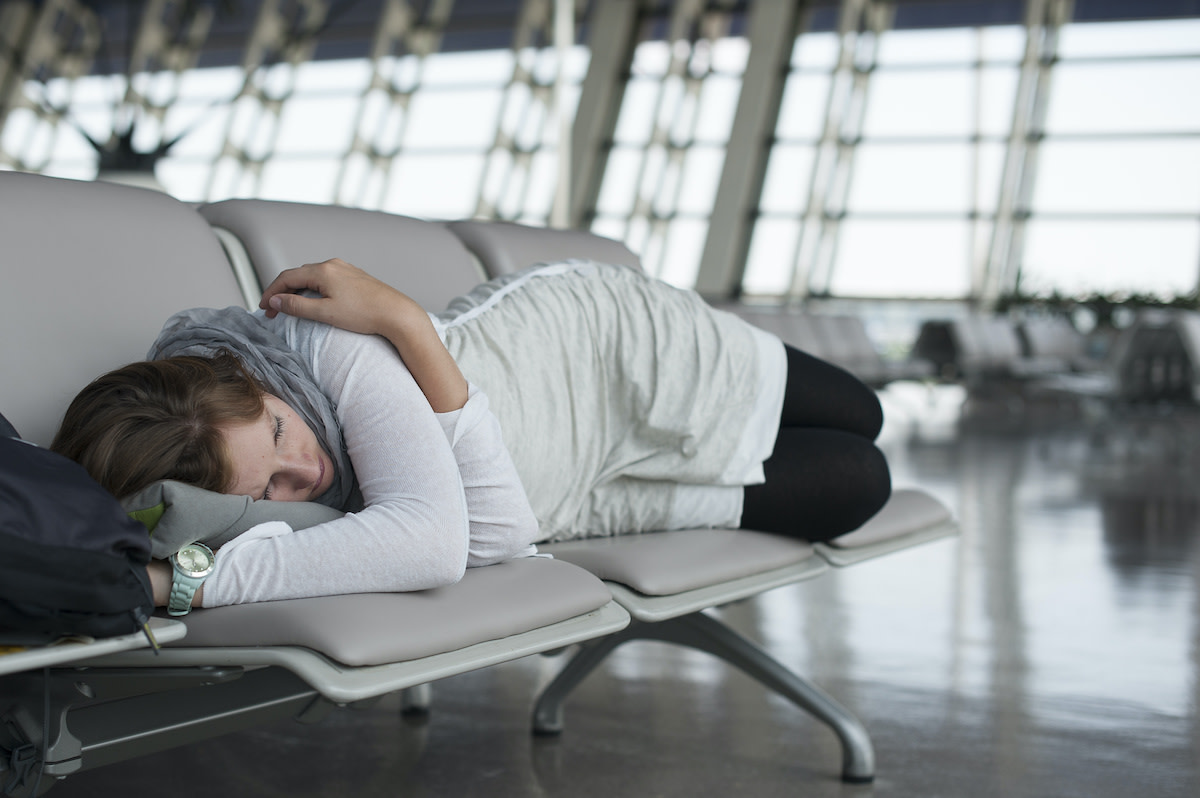7 Tips for Curbing Jet Lag Symptoms
Written by MasterClass
Last updated: Jun 7, 2021 • 4 min read
Traveling from one time zone to another may disrupt your internal clock. Known as jet lag, this occurs when air travel alters your body’s circadian rhythms.
Learn From the Best
What Is Jet Lag?
Jet lag is a disruption of one's circadian clock caused by rapid travel between different time zones. Also known as travel fatigue, flight fatigue, and desynchronosis, it affects the body's sleep-wake cycle.
If you’re experiencing jet lag, you may struggle to establish a sleep schedule in your new time zone. Other symptoms of jet lag include appetite changes, indigestion, daytime sleepiness, nighttime wakefulness, poor quality of sleep, diarrhea, constipation, headache, nausea, irritability, as well as short-term grogginess and confusion.
Jet lag’s effect on sleep can feel similar to the symptoms caused by shift work and sleep disturbances that result from excessive noise or bright light. Jet lag is connected with trans-meridian travel—the type of east-west or west-east travel that takes you to a different time zone. (North-south and south-north travel does not inherently involve a time zone change, so while it may lead to fatigue, it does not trigger definitional jet lag.)
How Long Does Jet Lag Last?
The length of jet lag tends to vary based on the number of time zones traversed. For many, westbound travel correlates with a half-day adjustment for each time zone crossed. Therefore, a person traveling from New York to Chicago may only need half a day to align their body clock to the new time zone. Going eastbound—where you lose hours—tends to be harder and may require a 24-hour cycle to acclimate to each hour adjustment. Meanwhile, traveling from New York City to Thailand, an 11-hour time difference, may require up to a week for a full adjustment.
What Causes Jet Lag?
Jet lag is caused by rapid travel to a new time zone. While all travel can require some bodily adjustments, a long west-to-east or east-to-west flight produces a particularly strong effect. Eastbound travel, such as from the United States to Europe, can cause particularly pronounced jet lag. Often such travelers land in the morning in their destination time zone, but their body's circadian rhythm has them producing melatonin and lowering their body temperature—both of which trigger the onset of sleep. Resetting the circadian clock and establishing a new schedule for your new location can be easier said than done.
3 Tips for Avoiding Jet Lag
To avoid jet lag and its various side effects, frequent travelers, such as flight attendants and international business professionals, use certain reliable techniques.
- 1. Manage light exposure. When flying to your destination, try to sync your light exposure to the time of day at your destination time zone. If it is daylight outside the aircraft window but nighttime at your destination, put on an eye mask to train your circadian system.
- 2. Adjust your sleep based on the direction of travel. If you are traveling westbound, this usually means your day will be extended. Do your best to remain awake on the flight, and resist the urge to fall asleep in the early evening. Don't hit the rack until nighttime falls, and you can typically stave off the worst effects of jet lag. If you're traveling eastbound, particularly on a red-eye flight, do your best to sleep aboard the plane. Wear earplugs and an eye mask if it helps you fall asleep.
- 3. Manage your eating schedule. Your eating schedule can also influence your circadian clock, including melatonin production and body temperature changes. Try to set an eating schedule based on the current time in your destination time zone.
4 Tips for Managing Jet Lag
If you arrive at your destination and feel the effects of jet lag, there are strategies you can employ that can help.
- 1. When traveling west, stay up late. If you've traversed several time zones by traveling west, resist the urge to fall asleep too early. Try staying up until at least 9:00 p.m. to acclimate to the local time zone.
- 2. When traveling east, sleep at a reasonable hour, even if you are not tired. If you have traveled east by several time zones—such as from the west coast to the east coast of the United States—force yourself to go to bed before midnight. If necessary, you can try natural sleeping pills containing the hormone melatonin, which don’t interfere with the natural processes of REM and non-REM sleep in the way that artificial sleep medications do.
- 3. Set an alarm when traveling east. If you want to truly overcome jet lag when traveling east, you must wake up at a reasonable hour. Set an alarm and abide by it.
- 4. If you must nap, do so in short durations. Sometimes your body gives you no choice but to nap. In such cases, try limiting yourself to 20-minute naps to balance the need to rejuvenate with the need to reset your circadian clock. If you find yourself tired again in a few hours, take another 20-minute nap and repeat the pattern until nightfall, when it's okay to settle in for a full sleep.
Want to Learn More About Catching Those Elusive Zs?
Saw some of the best darn logs of your life with a MasterClass Annual Membership and exclusive instructional videos from Dr. Matthew Walker, the author of Why We Sleep and the founder-director of the Center for Human Sleep Science at the University of California, Berkeley. Between Matthew’s tips for optimal snoozing and info on discovering your body’s ideal rhythms, you’ll be sleeping more deeply in no time.
